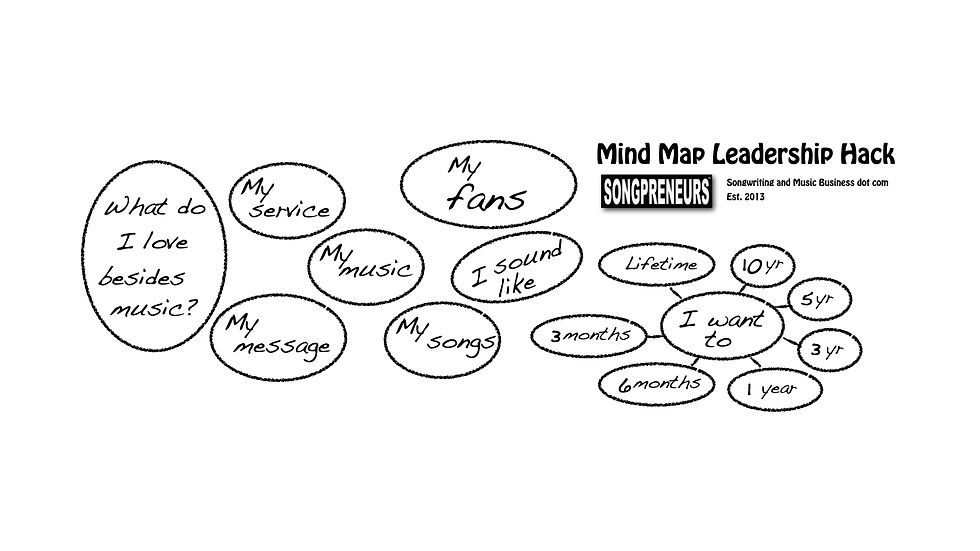Songwriter Protocol For Label Cuts #AskAmanda
- Songpreneurs HQ

- Jun 7, 2018
- 5 min read
Updated: Dec 14, 2019
“I am wondering what is your take on the protocol with the few remaining large recording labels and new independent small labels as relates to recording costs?
I thought that labels and self-labeled independent artists were/are to pay the cost of recording and pay songwriters the mechanical royalty rates for physical CDs before any physical CDs are sold. Just trying to get my facts straight.” – Danny

Music industry revenues have shrunk by about 50% over the past 15 years, and because of that, there are a lot of interesting practices popping up among independent record companies that help them stay afloat financially.
Before answering this question, let’s back up a second and take a look at the underlying copyrights we’re talking about here.
Songwriters write songs, and the resulting intellectual property created is protected by the “c” copyright ©.
Recording artists with the help of their producer, musicians, engineer, and record company create recordings, and the resulting intellectual property created is protected by the “p” copyright ℗.
When recording artists record a song, they are required to pay mechanical royalties to the songwriters/publishers to compensate them for use of their © copyright.
If you’re selling physical CDs or digital downloads (mp3s), the statutory rate for this mechanical royalty payment is set by Congress at 9.1 cents per unit sold. So if you sell 1000 units, you owe the songwriters $91.
The problem for songwriters in the new millennium of music business is that many recording artists and record companies no longer focus on selling physical CDs or downloads, and instead focus on getting high streaming numbers on Spotify and Apple Music.
These streaming companies pay much smaller royalties to songwriters than we used to get under the physical distribution systems.
How much smaller? You can usually divide what you used to get by about 91. So take the $91 you used to make from 1000 units sold and divide that by 91, and you get your streaming royalty estimate, which is $1.
Actually, it’s usually even less than that, because of the way streaming royalties are calculated and distributed to songwriters and publishers.
For songwriters today, there are a lot of variables when it comes to standard protocol.
As Danny’s question indicates, the standard way of licensing is to get permission to record the song in the form of a mechanical license before releasing the product to the public.

There are a few practical and legal reasons to do this. [Note – author is not an attorney and this is not legal advice.]
Firstly, if the song being recorded has never been recorded and released before, there is a thing called right of first use in the United States that requires explicit permission from the copyright owner in order to release the song the first time.
If the song has not been released before, and you record and release it without signed permission from the publisher (songwriters who are not signed to a publisher are considered self-publishers), then they can sue you and charge whatever they want for the use of the song.
Most record companies know this, and want to avoid this possibility, and therefore, they will make sure their licensing is in place prior to releasing the song for sale.
If a song has been recorded and released before, the record company can use the song without a direct license from the publisher or songwriter, as long as they file a NOI (notice of intent) to the Copyright Office, and pay the statutory royalty rate on a monthly basis.
These kinds of licenses are called “compulsory licenses” and were not used very much prior to the dawn of the digital distribution services online. Now, they’re very common, partly because the digital distribution providers make it easy to keep up with these cumbersome monthly accounting requirements (in theory.)
Now I think what Danny is asking is really, is it normal for a record company to charge the songwriter to record their song.

The answer to that is, “No.” A record company that is charging a songwriter to record their song is not operating according to standard protocol.
A record company would probably not want to charge the songwriter to record their song, because the songwriter, or anyone who contributes to the cost of the recording, could easily come back and say they own all or part of the sound recording copyright (the “p” copyright that the record company usually owns.)
Smart labels wouldn’t want that, because the sound recording copyright is where their profit is going to be.
However, there is an area that labels do sometimes ask for songwriter and publisher contribution, and that’s for promotion.
Sometimes a major or indie label will call the publisher or songwriter, and ask for money that will go toward independent promotion of the song to radio.
While this isn’t always the case, it is common enough that you should know about it in case a label asks you for money for promotion of your song.
To completely answer this question, it’s important to mention a practice common to most major labels and large indie labels alike, and that’s called “controlled composition.”
When artists sign their recording contracts, they are often required to include a “controlled comp.” clause covering the songs they intend to record.
This effective reduces the amount of mechanical royalty payable to the songwriters of the songs that are recorded by 25% or more.
This is a negotiated agreement that basically says, take the reduced royalty rate, or forget it, and ends up earning the songwriter/publisher about 75% of statutory, or 6.8 cents per unit sold instead of 9.1 cents.
Sometimes high clout artists can reduce their controlled composition amount, thus earning more for their publishing royalty.

And sometimes these reduced royalty rates for songwriters and publishers are accepted for Greatest Hit projects where the songs recorded have already been recorded and released before.
When this is the case, usually the label will provide an advance on a large number of units, making it a good deal for songwriters and publishers who are really feeling the squeeze from 15 years of piracy and streaming rates.
In terms of numbers, this will usually be a 50% of statutory royalty rate on a guarantee of 1 million units sold, which looks like this:
50% of $0.091 = $0.0455 * 1,000,000 units = $45,500
If the artist did not provide this kind of substantial advance, the songwriter would actually be looking at 1 million units of streaming royalty income, which would be something between $500 and $1000 depending on where it was streaming.
You’ll hear pundits and non-songwriters standing on high morals saying that, “Songwriters should never take a reduced royalty rate.”
But when you actually have to live off your songwriter royalty income, you’ll take a 50% statutory rate on physical units all day long over full statutory for streaming. That’s just economic reality.
Thanks for your question, Danny.
So in summary, while it’s standard in the music industry for record companies to pay the recording costs, and compensate the songwriters for their mechanical rights in advance, this is not always the case in practice. If you’re asked to pay for recording costs, and you really want to do it, at least make sure you’ll be recouped (they pay you back) as the product sells.
Got more questions? Send your #AskAmanda question to us, and if it’s selected, we’ll post the answer here on the Songpreneurs Blog.
Other great resources for the DIY music pro are our workbooks. Check them out here.
#songwriter #recordlabel #majorlabel #independents #recordingartists #recording #soundrecording #copyright #nonattorneycopyrightexpert #nonperformingsongwriters #cds #streaming #digital #digitaldownloads #musicproducts #musicindustry #finances #economics #mechanicals #Spotify #AppleMusic #royalty #licensing #compulsorylicense #compulsoryrate #legal #publishers #release #CopyrightOffice #cuts #controlledcomposition #advance #workbooks























Kommentare